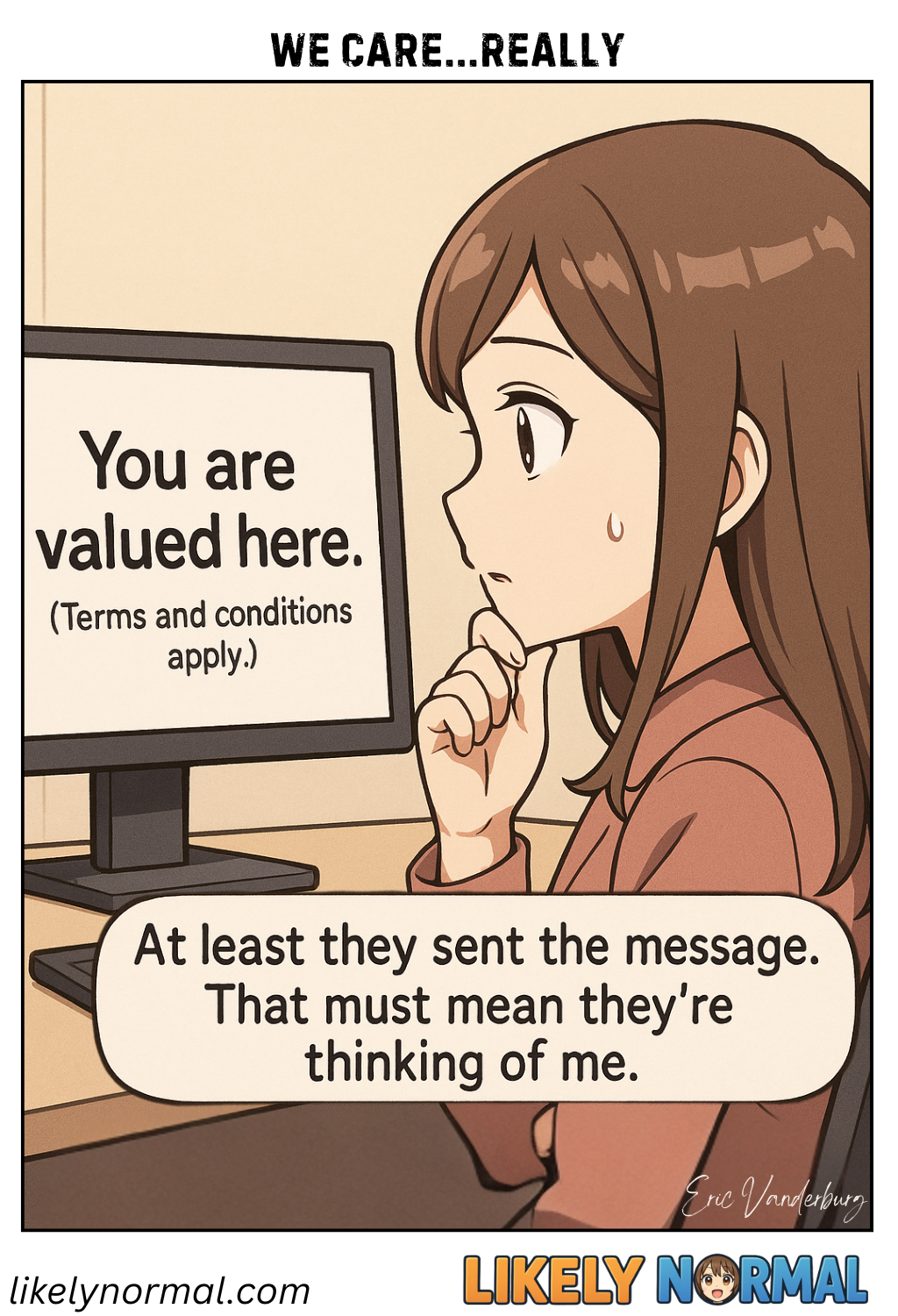We Care…Really
Corporate America runs on a steady diet of motivational sludge. These vague, glittering phrases like “Innovate the future!” and “Embrace the synergy!” sound profound but contain all the nutritional value of a PowerPoint slide. These phrases are the linguistic equivalent of a participation trophy: everyone knows they’re meaningless, yet somehow, we still feel a little prouder when we receive them.
The irony is that these slogans are often churned out by executives who clearly focus-grouped them into oblivion. “Let’s disrupt the paradigm!” shouts a man whose biggest personal disruption this year was switching from oat milk to almond. “Failure is not an option!” declares a leader whose team just spent six months failing to fix the printer. Yet studies suggest these hollow mantras do have an effect—just not the one intended.
Take the infamous “light intensity” study, where researchers found that workers exposed to brighter office lighting reported higher morale and productivity—even when the light change was imperceptible. The mere suggestion that their environment was “optimized” made people perform better, despite nothing actually changing. Corporate motivational messages work the same way: they’re the linguistic equivalent of a placebo light bulb.
We know “Teamwork makes the dream work” is a grammatical crime. We see that the “inspirational” quote on the breakroom wall was stolen from a 2014 LinkedIn post. Yet when a manager earnestly declares, “You’re not just employees—you’re rock stars!” before announcing mandatory Saturday shifts, something in our brain still perks up. “Did they just call me a rock star? I do kind of rock.”
This is the dark magic of corporate motivation: it bypasses logic and taps straight into our desperate need to feel valued. A study on receptivity found that people will rate meaningless business jargon (“Let’s leverage our core competencies to drive scalable solutions!”) as deeply profound if it’s presented with enough confidence. It turns out humans are so starved for meaning that we’ll accept even the emptiest phrases as wisdom, like motivational golden retrievers just happy to be included.
So the next time you hear “We’re all family here!” (while HR processes your layoff notice) or “There’s no ‘I’ in team!” (while one person does all the work), remember: these phrases aren’t for you. They’re psychological caffeine—a cheap, artificial stimulant to keep you grinding. But hey, if a fake light bulb can make us happier, maybe there’s hope for us yet.

Discussion ¬